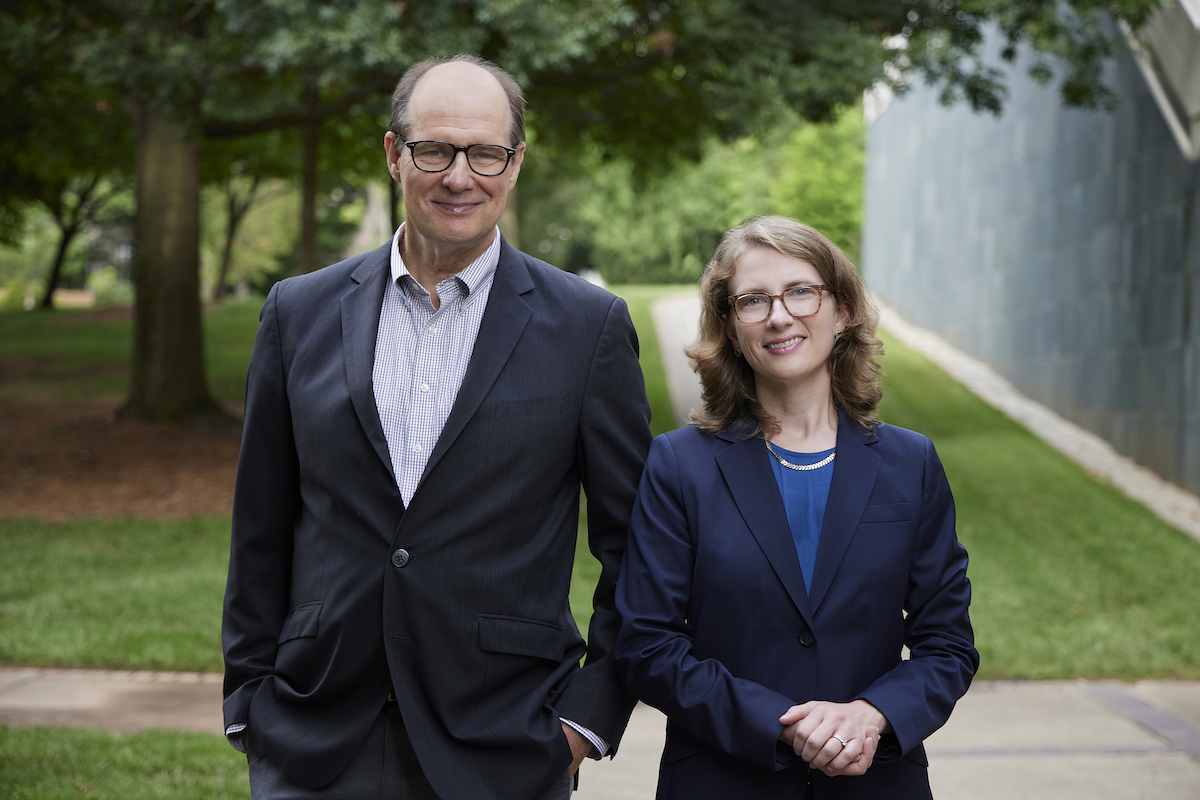Welcome!
The Center for the Study of Law and Religion at Emory University promotes and produces innovative research and scholarship, exemplary teaching and training, robust public engagement.
Scholarship at the Center takes many forms. The Center edits three book series—Cambridge Studies in Law and Religion; Eerdmans Studies in Law and Religion; and Brill Perspectives on Law and Religion. The Center’s faculty and fellows have published more than 350 books with leading university and trade presses, together with two dozen major journal symposia on important law and religion themes.
In collaboration with Cambridge University Press, the Center publishes the Journal of Law and Religion, a distinguished forum for cutting-edge research and deep dialogue on a number of areas where law and religion intersect, including human rights, religion-state relations, religious legal systems and their place in secular law, political theology, legal and religious ethics, and more. Canopy Forum is the Center’s digital publication that produces expert analysis for the broader community—citizens, scholars, lawyers, clergy, journalists, and policy makers, among others.
The Center supports Emory Law School’s offering of a JD concentration in law and religion; LLM and SJD offerings; joint JD/MTS, JD/MDiv degree programs with Candler School of Theology and the JD/PhD program with the Laney Graduate School. The Center also offers students and post-docs with fellowship opportunities to focus their research and writing.
To stay up to date with what is happening at the Center, sign up for our newsletter and follow us on social media.

CSLR Faculty Director John Witte, Jr. and new CSLR Executive Director Whittney Barth
History
Emory University founded its program in law and religion in 1982 as part of a larger goal of building a fully interdisciplinary university. The program’s mission was to increase understanding of the fundamental role of religion in shaping law, politics, and society. At the time, no other major U.S. law school devoted serious scholarship or teaching to the field of law and religion. In fact, Emory’s vision of studying religion alongside law and other professional disciplines met with suspicion, even hostility, in some quarters.
The founders of the program, then-president James T. Laney and Emory law professor Frank S. Alexander, believed in the vital need for focused scholarship and teaching in this new field. Here, students and scholars could probe the tension between church and state, religion and politics. Here they could come to understand the nuances of Jewish, Christian, and Islamic laws and their place in modern nations. Here they could explore the religious foundations and dimensions of law, politics, and society. Seeking to prove the legitimacy of the interdisciplinary study of law and religion, the program’s faculty set out to show that it would enhance understanding of law without diluting rigorous legal study, and would widen the horizons of religious education without propagating a particular faith or ideological agenda.
In 1985, President Laney persuaded Harvard Law School professor Harold J. Berman (1918–2007) to join Emory as the first Robert W. Woodruff Professor of Law. Regarded around the world as the father of the modern study of law and religion, Berman brought instant stature to Emory’s program. He also brought John Witte Jr., a recent Harvard Law graduate and research assistant, who was soon tapped to be the new director of the Law and Religion Program and later succeeded Berman as Robert W. Woodruff Professor of Law.
Under Witte’s direction since 1987, the program grew from a joint-degree curriculum into a full-fledged academic center sponsoring interdisciplinary research, international conferences, and new scholarly publications. The Center gained international prominence with its 1991 conference, “Christianity and Democracy,” bringing together 800 participants from five continents and offering keynote addresses by former President Jimmy Carter and Anglican Archbishop Desmond Tutu. More conferences of comparable ambition followed on themes of religious freedom; proselytism; children's rights; sex, marriage, and family life; Islamic family law; and more, each event yielding several new books. By 2000, the Pew Charitable Trusts solidified the program’s status with a $3.2 million “Center of Excellence” grant with a matching $10 million endowment from Emory University. Renamed the Center for the Study of Law and Religion, the Center became the academic home to dozens of faculty fellows, thousands of students, and a strong team of professional staff.
In August 2022, Whittney Barth joined the Center as Executive Director and Charlotte McDaniel Scholar. Her arrival at CSLR coincided with the Center’s 40th anniversary.
The Center continues to focus on its signature themes of law and Judaism, Christianity, and Islam; law, religion, and human rights; and law, religion, and jurisprudence. In recent years, the Center also has expanded its reach to begin exploring the relationship of law to Hinduism, Buddhism, and other religions; the role of law and religion in social justice; and the interaction of law, religion and health.
In addition to generous University support for operations, the Center has attracted $25 million in grant funding.

